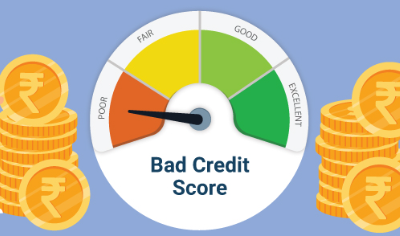Financial literacy is crucial in navigating the complexities of the modern digital age, where personal finance management is increasingly intertwined with technology and online platforms. In this guide, we delve into the significance of financial literacy in the digital era and provide actionable strategies for bridging the gap and empowering individuals to make informed financial decisions.
1. Understanding Financial Literacy in the Digital Age
Overview:
- Digital Transformation: Technology has revolutionized how individuals access and manage financial information, creating new opportunities and challenges.
- Empowerment: Financial literacy empowers individuals to understand and effectively utilize digital tools and platforms for financial management, budgeting, investing, and banking.
2. The Importance of Financial Education
Benefits:
- Empowerment: Financial education equips individuals with the knowledge and skills needed to make informed financial decisions, manage debt, save for the future, and build wealth.
- Risk Mitigation: Increased financial literacy reduces the risk of falling victim to scams, fraud, and predatory financial practices prevalent in the digital realm.
3. Digital Tools and Resources for Financial Literacy
Utilization:
- Budgeting Apps: Explore budgeting apps and digital tools that help track expenses, set financial goals, and manage budgets in real-time.
- Online Courses and Webinars: Take advantage of online courses, webinars, and educational resources offered by financial institutions, government agencies, and reputable organizations to enhance financial knowledge.

4. Personal Finance Management Apps
Features:
- Expense Tracking: Personal finance apps offer features for tracking expenses, categorizing transactions, and analyzing spending patterns to identify areas for improvement.
- Goal Setting: Set financial goals, such as saving for emergencies, retirement, or major purchases, and track progress toward achieving them using goal-setting features.
5. Investment Platforms and Robo-Advisors
Accessibility:
- Robo-Advisors: Utilize robo-advisors and investment platforms that offer automated investment management services, low-cost investment options, and personalized portfolio recommendations.
- Education Resources: Many investment platforms provide educational resources, tutorials, and investment guides to help users make informed investment decisions.
6. Online Banking and Financial Services
Convenience:
- Mobile Banking Apps: Access banking services, manage accounts, transfer funds, and pay bills conveniently through mobile banking apps offered by banks and financial institutions.
- Security Measures: Ensure the security of online banking and financial transactions by following best practices for password management, multi-factor authentication, and fraud detection.
7. Financial Literacy Initiatives and Programs
Outreach:
- School Curriculum: Advocate for financial literacy education to be integrated into school curriculums at an early age to instill good financial habits and skills.
- Community Workshops: Participate in community workshops, seminars, and outreach programs focused on financial literacy to enhance knowledge and awareness.
8. Empowering Vulnerable Populations
Inclusion:
- Targeted Programs: Develop targeted financial literacy programs and resources tailored to vulnerable populations, including low-income individuals, seniors, immigrants, and underserved communities.
- Accessible Information: Ensure financial information and resources are accessible, culturally relevant, and available in multiple languages to reach diverse audiences.
9. Continuous Learning and Adaptation
Evolution:
- Lifelong Learning: Embrace a mindset of lifelong learning and continuous adaptation to stay informed about evolving financial technologies, trends, and regulations.
- Stay Informed: Stay updated on the latest developments in personal finance, fintech innovations, and digital banking services through reputable sources and industry publications.
Conclusion
Financial literacy is essential in navigating the complexities of the digital age, where technology plays a central role in personal finance management. By embracing financial education, leveraging digital tools and resources, and advocating for inclusive financial literacy initiatives, individuals can bridge the gap and empower themselves to make informed financial decisions in today’s digital landscape.





